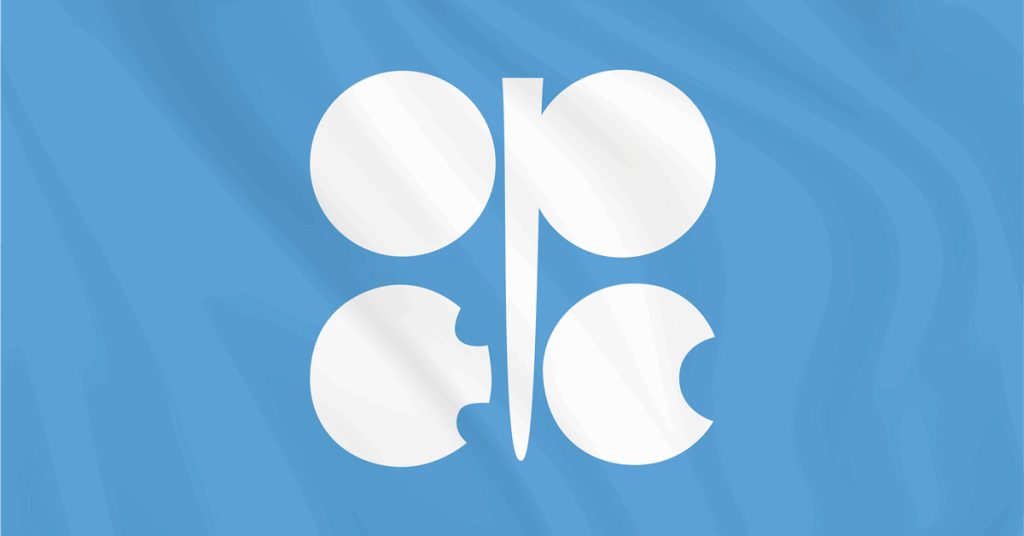Senior officials from three of OPEC’s core producer nations – Saudi Arabia, the United Arab Emirates, and Kuwait – lined up on Wednesday to say that the super-sized addition of supply by the producer club at the weekend was needed by the global market.
Oil prices eked out gains this week, a sign that the market has largely shrugged off the larger-than-expected output hike announced on Saturday by the Organization of the Petroleum Exporting Countries and allies. Despite the current tightness, forecasters are pointing out that supply growth is at risk of outpacing demand later in the year.
“You can see that even with the increase in several months, we haven’t seen a major buildup in the inventories, which means the market needed those barrels,” Suhail Al Mazrouei, the United Arab Emirates energy minister said on the sidelines of a conference that the group is holding in Vienna. His comments were echoed by officials at the state oil companies of Saudi Arabia and Kuwait.
Signs of a tight market include crude oil stockpiles at the key US storage hub of Cushing, Oklahoma that are at their lowest seasonally since 2014, as well as a collapse in America’s diesel inventories. Timespreads point to tight supply-and-demand dynamics in the near term.
Bloomberg News hasn’t received accreditation to cover the OPEC seminar, despite multiple requests. No explanation has been given.
Healthy Demand
Saudi Aramco, which hiked its key oil prices for customers in Asia a day after the weekend meeting, sees “healthy global oil demand,” despite trade challenges, tariffs and their impact on the global economy, President and CEO Amin Nasser said at the OPEC Seminar in Vienna, according to a video posted on the X platform.
In April, OPEC+ announced – to the surprise of the market – the addition of 411,000 barrels a day of production to the global market, repeating the increase again in May and June. It went one step further on Saturday with a hike of 548,000 barrels a day.
Sheikh Nawaf Al-Sabah, chief executive officer of Kuwait Petroleum Corp., told Bloomberg TV in an interview on the sidelines of the seminar that the market is in good shape.
“We’re seeing some potential tightness in the market, which gives us an opportunity to capture market share in the future,” he said.
Bleaker Later
Still, Patrick Pouyanne, chief executive officer of French oil major TotalEnergies SE, said the lack of a bigger price rally during Israel’s recent conflict with Iran was suggestive of a market that’s well supplied.
“The market’s well supplied, by the way,” he said according to a video of his remarks posted on X. “Honestly, I was a bit surprised” by how little the market gained.
Still, the fate of the market beyond summer, when demand typically rises, is less certain.
“Right now, if you look out the window, the market is pretty tight,” Bob McNally, president and founder of Rapidan Energy Group and a former White House energy official, said in Vienna, adding that his assessment is that supply should start to outpace demand later this quarter when refineries will process less crude and the extra barrels start to hit the market.
What do you think? We’d love to hear from you, join the conversation on the
Rigzone Energy Network.
The Rigzone Energy Network is a new social experience created for you and all energy professionals to Speak Up about our industry, share knowledge, connect with peers and industry insiders and engage in a professional community that will empower your career in energy.
element
var scriptTag = document.createElement(‘script’);
scriptTag.src = url;
scriptTag.async = true;
scriptTag.onload = implementationCode;
scriptTag.onreadystatechange = implementationCode;
location.appendChild(scriptTag);
};
var div = document.getElementById(‘rigzonelogo’);
div.innerHTML += ” +
‘‘ +
”;
var initJobSearch = function () {
//console.log(“call back”);
}
var addMetaPixel = function () {
if (-1 > -1 || -1 > -1) {
/*Meta Pixel Code*/
!function(f,b,e,v,n,t,s)
{if(f.fbq)return;n=f.fbq=function(){n.callMethod?
n.callMethod.apply(n,arguments):n.queue.push(arguments)};
if(!f._fbq)f._fbq=n;n.push=n;n.loaded=!0;n.version=’2.0′;
n.queue=[];t=b.createElement(e);t.async=!0;
t.src=v;s=b.getElementsByTagName(e)[0];
s.parentNode.insertBefore(t,s)}(window, document,’script’,
‘https://connect.facebook.net/en_US/fbevents.js’);
fbq(‘init’, ‘1517407191885185’);
fbq(‘track’, ‘PageView’);
/*End Meta Pixel Code*/
} else if (0 > -1 && 92 > -1)
{
/*Meta Pixel Code*/
!function(f,b,e,v,n,t,s)
{if(f.fbq)return;n=f.fbq=function(){n.callMethod?
n.callMethod.apply(n,arguments):n.queue.push(arguments)};
if(!f._fbq)f._fbq=n;n.push=n;n.loaded=!0;n.version=’2.0′;
n.queue=[];t=b.createElement(e);t.async=!0;
t.src=v;s=b.getElementsByTagName(e)[0];
s.parentNode.insertBefore(t,s)}(window, document,’script’,
‘https://connect.facebook.net/en_US/fbevents.js’);
fbq(‘init’, ‘1517407191885185’);
fbq(‘track’, ‘PageView’);
/*End Meta Pixel Code*/
}
}
// function gtmFunctionForLayout()
// {
//loadJS(“https://www.googletagmanager.com/gtag/js?id=G-K6ZDLWV6VX”, initJobSearch, document.body);
//}
// window.onload = (e => {
// setTimeout(
// function () {
// document.addEventListener(“DOMContentLoaded”, function () {
// // Select all anchor elements with class ‘ui-tabs-anchor’
// const anchors = document.querySelectorAll(‘a .ui-tabs-anchor’);
// // Loop through each anchor and remove the role attribute if it is set to “presentation”
// anchors.forEach(anchor => {
// if (anchor.getAttribute(‘role’) === ‘presentation’) {
// anchor.removeAttribute(‘role’);
// }
// });
// });
// }
// , 200);
//});

